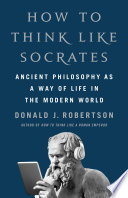

The Socratic Method is a form of cooperative argumentative dialogue that stimulates critical thinking, where participants ask and answer questions to stimulate deeper thought and illuminate ideas. This method encourages individuals to challenge assumptions, clarify concepts, and explore the implications of their beliefs. By engaging in this dialectical process, one learns to think more rigorously and independently. In practice, applying the Socratic Method involves asking open-ended questions that provoke discussion, rather than leading to a simple yes or no answer. This method not only helps in understanding complex issues but also fosters a culture of inquiry that can be beneficial in both personal and professional settings.
Continue readingOne of the core tenets of Socratic thinking is the relentless questioning of assumptions. Socrates believed that many of the beliefs people hold are based on unexamined assumptions that can lead to flawed reasoning and poor decision-making. By actively questioning these assumptions, individuals can uncover hidden biases and gain a clearer understanding of their beliefs. This process requires intellectual humility and the willingness to accept that one may be wrong. In a practical sense, this means regularly evaluating one's own beliefs and the foundations upon which they rest, which can lead to more informed and rational decisions.
Continue readingSocrates emphasized the value of dialogue in the pursuit of knowledge and truth. In a world increasingly dominated by monologue and echo chambers, engaging in meaningful conversations with others can provide diverse perspectives and insights that challenge our own views. Dialogue fosters empathy and understanding, allowing individuals to appreciate different viewpoints and refine their own thinking in the process. This idea is particularly relevant in today's polarized society, where constructive dialogue can bridge divides and promote collaborative problem-solving.
Continue readingSocratic irony, a technique used by Socrates, involves pretending to be ignorant or less knowledgeable than one truly is to encourage others to express their thoughts and beliefs. This approach not only disarms opponents but also exposes contradictions in their reasoning. Embracing paradox can also lead to deeper insights, as it challenges binary thinking and encourages individuals to explore the complexities of issues. Recognizing and engaging with irony and paradox can enhance critical thinking skills and promote a more nuanced understanding of the world.
Continue readingFor Socrates, the ultimate goal of life was the pursuit of virtue and wisdom. He believed that knowledge is intrinsically linked to ethical behavior, and that true wisdom involves understanding oneself and one’s place in the world. This pursuit requires self-reflection, a commitment to lifelong learning, and the courage to confront uncomfortable truths about oneself. In modern contexts, this idea encourages individuals to seek personal growth and ethical integrity in their decision-making, both in their personal lives and professional endeavors.
Continue readingSocrates famously stated that 'the only thing I know is that I know nothing.' This acknowledgment of uncertainty is a powerful aspect of Socratic thinking. Embracing uncertainty allows individuals to remain open to new ideas and perspectives, fostering a mindset of curiosity and exploration. In a world where information is abundant yet often misleading, being comfortable with uncertainty can lead to better decision-making and innovation. This idea encourages individuals to cultivate a sense of wonder and inquiry, recognizing that the quest for knowledge is ongoing.
Continue readingSocrates understood that knowledge is not isolated but interconnected. Different areas of knowledge influence and inform one another, creating a web of understanding that can enhance problem-solving and creativity. This interconnectedness encourages individuals to draw from diverse fields and disciplines, fostering interdisciplinary thinking. In practice, this means seeking knowledge from various sources, collaborating with others, and recognizing that complex problems often require multifaceted solutions. By appreciating the interconnectedness of knowledge, individuals can develop a more holistic approach to learning and decision-making.
Continue readingThe reading time for How to Think Like Socrates depends on the reader's pace. However, this concise book summary covers the 7 key ideas from How to Think Like Socrates, allowing you to quickly understand the main concepts, insights, and practical applications in around 19 min.
How to Think Like Socrates is definitely worth reading. The book covers essential topics including The Socratic Method, Questioning Assumptions, The Importance of Dialogue, providing practical insights and actionable advice. Whether you read the full book or our concise summary, How to Think Like Socrates delivers valuable knowledge that can help you improve your understanding and apply these concepts in your personal or professional life.
How to Think Like Socrates was written by Donald J. Robertson.
If you enjoyed How to Think Like Socrates by Donald J. Robertson and want to explore similar topics or deepen your understanding, we highly recommend these related book summaries:
These books cover related themes, complementary concepts, and will help you build upon the knowledge gained from How to Think Like Socrates. Each of these summaries provides concise insights that can further enhance your understanding and practical application of the ideas presented in How to Think Like Socrates.